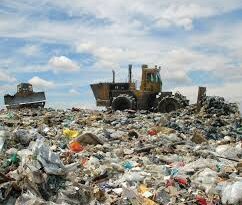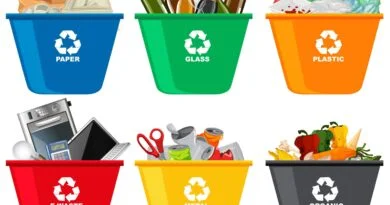Managing Electronic Waste to Ensure Green Computing
The appropriate and efficient use of computing resources is known as green computing. It is the name given to the movement, which stands for a less power-intensive method of computing that is environmentally friendly. It contributes significantly to reducing the harmful effects of computer resources on the environment and is linked to their proper use.
The two main problems with green computing are pollution management and energy consumption reduction.
Read Also : Water and Waste-water Purification Process
We are concentrating on recycling and trash management challenges in this article.
Waste Control Waste is any material that is thrown away. It is an important raw material that is at the incorrect location.
Numerous wastes are either being used in inefficient ways or going completely unused, which poses serious risks to the environment and to people. It can be processed with the right technologies to create a valuable product.
These wastes come in a variety of forms and can be divided into hazardous and nonhazardous categories. Governmental wastes, electronic wastes, bio-medical wastes, and industrial wastes are further categorized into these.
According to a survey, electronic waste that contaminates ground water is the source of nearly 70% of the heavy metals found in landfills. Instead of just being buried or discarded, these wastes cause hazardous emissions and air pollution if they are burned.
Even while computer architecture has advanced horribly and surprisingly quickly in terms of performance, from a green standpoint, the work is still in its infancy. Traditionally, lead, cadmium, mercury, and so many other poisons are used in the manufacturing of computers.
A computer alone carries 4 to 8 pounds of lead, and together with other electronic equipment, they account for around half of all the lead found in landfills.
The need for handling electronic trash is becoming more urgent as the world is becoming more digital. Green computing can lessen the economic impact of electronic waste when the appropriate rules are in place.
Anything that has an electronic circuit or battery, such as computers, cell phones, TVs, and refrigerators, is considered to be electronic trash. This garbage can release dangerous chemicals into the soil and water if it is not handled appropriately. When burned, it can potentially emit dangerous pollutants into the air.
Making sure that electronic waste is correctly recycled is the first step in managing it. This entails locating a licensed e-waste recycler who can remove and discard the components properly.
There are numerous alternative strategies to lessen the environmental effect of electronic trash in addition to recycling.
Manufacturers, for instance, can create items that are more durable and energy-efficient. And consumers have the option to purchase reconditioned or used goods rather than brand-new ones.
Collectively, we can ensure that electronic trash is managed appropriately and have a less negative impact on the environment.
The necessity to properly manage electronic trash intensifies as the world gets more and more digital. Electronic waste, if improperly managed, can release dangerous chemicals into the environment, contaminating soil and water and endangering human health.
Green computing and effective electronic waste management can be achieved in a variety of ways. The first is to buy goods that have received EPEAT certification, an environmental evaluation system for electronic goods. Another is to reuse or recycle old electronics rather than throwing them away.
Preserving the environment and public health requires proper treatment of electronic waste. We can all do our share to secure a sustainable future by recycling or donating old technology and taking action to buy certified green products.
Consider the following tips to use computers more sustainably:
(1) Disconnect your monitor
Put your monitor in standby or turn it off when not in use as it consumes a lot of electricity.
(2) Brightness can be changed
On a monitor, the brightest setting uses twice as much power as the lowest setting.
(3) Extinguish All Peripherals
Turn off your speakers, scanner, and other add-ons whenever you are not using them.
(4) Shut down your printer
Turn off your printer until you need it because it consumes a lot of energy. Ensure that it has a standby mode that uses less power when it is on in the power settings.
(5) Before printing, see the preview
Just the content you require should be selected and printed. Printing jobs should not include unnecessary pages.
– Two-sided printing
Printing numerous pages on a single sheet is an additional method to cut down on paper usage.
It’s difficult to fathom life without cellphones, GPS navigation systems, laptops, and other electronic devices in the modern era due to how quickly technology has advanced in recent years.
While this is happening, environmentalists, state and local governments, and even the United Nations are seriously considering how to decrease e-waste in light of the exponential growth in the volume of used electronics being wasted.
Our ever-increasing dependence on electronics has caused e-waste to become the fastest-growing waste stream in the world, yet there are actually relatively easy methods that each of us can contribute to its reduction.
All it takes is your determination to refrain from either discarding or storing your used electronics in a closet or desk drawer.
Strategies to Manage Electronic Waste in order to Promote Green Computing
(1) Be a wise customer: When you’re prepared to purchase a certain product, do some homework. Check to see whether it won’t break quickly or get damaged soon after you buy it.

To put it another way, seek for things that are likely to last considerably longer so you won’t need to renew it after a few years or even just a few months.
Read Also : Definition of Corrosion and Causes of Corrosion in Waste-water Treatment Plant
Making products with shorter life spans so that more money may be made later on when they fail or break is acknowledged to be a frequent practice in the electronics industry.
(2) Use as frequently as you can. Try repairing the electrical gadget if you have functional components and equipment before purchasing a new one. Additionally, recycle the gadget if it can no longer be fixed.
Learn about the ingredients that are used in your electronics. The power of knowledge. You can learn how toxic such substances can be if they are thrown into a landfill by doing some research on the basic ingredients used to make your laptop or mobile phone. The more informed you are, the more goods you can buy that won’t damage the environment.
(3) Keep what you’ve got. Small adjustments extend the life of what you already have. To extend the lifespan of your battery, keep your computer clean frequently and avoid overcharging it.
In conclusion, e-waste can be significantly decreased by taking these actions, making those small changes, and encouraging others to follow suit.
For further questions kindly use the comment box provided below for all your questions and if this article was helpful, please share with us to also benefit from its information.



